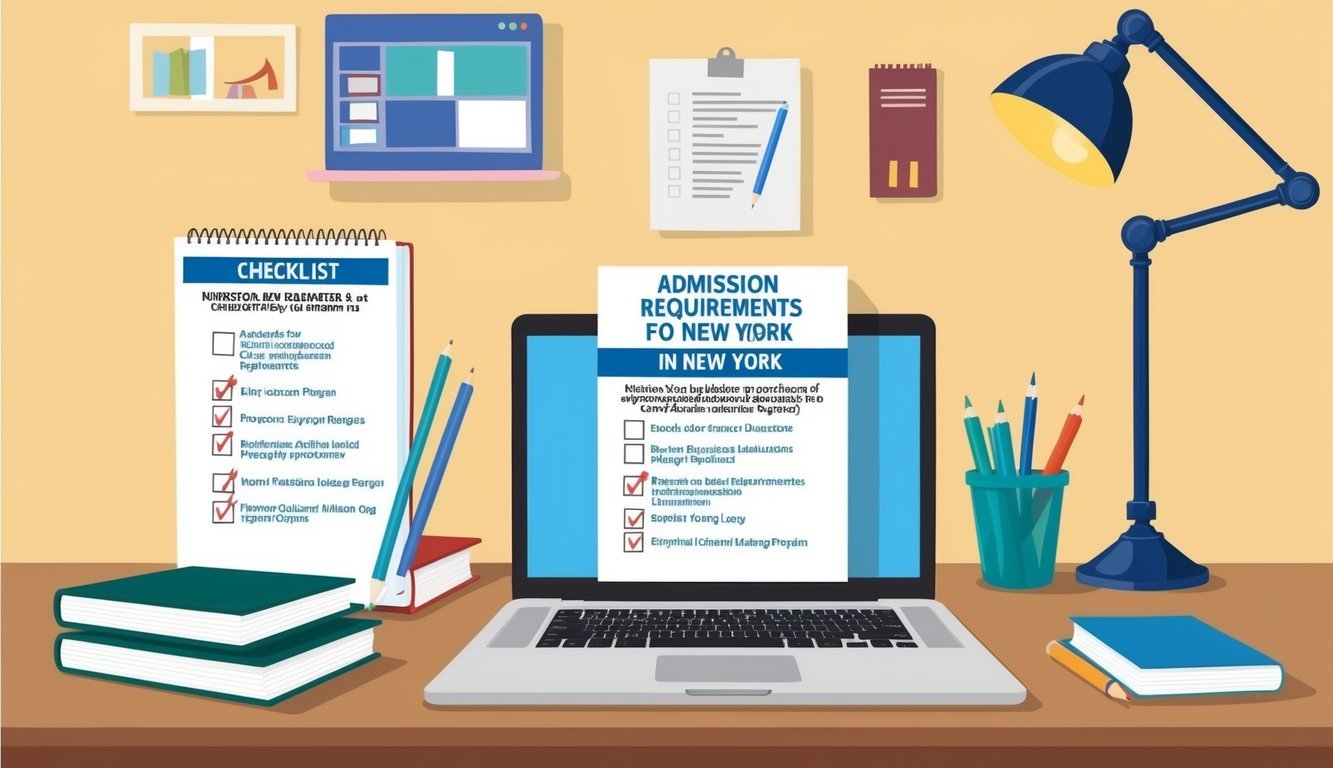Accelerated nursing programs offer a fast track to a rewarding career in healthcare, especially for those holding a non-nursing bachelor’s degree.
If you’re looking to transition into nursing without breaking the bank, you can find many affordable accelerated BSN programs in New York.
This path not only shortens the time to become a registered nurse but also provides a strong foundation for your future in the field.
In New York, several institutions offer cost-effective options for the Accelerated Bachelor of Science in Nursing.
Programs typically range in duration from 12 to 15 months, allowing you to enter the workforce quickly.
Schools like Hunter College and Phillips School of Nursing at Mount Sinai provide reputable programs at competitive prices, making it easier for you to take the first step toward a fulfilling nursing career.
Investing in your education is crucial, but it doesn’t have to be overly expensive.
By exploring various options, you can find a program that aligns with your budget while ensuring you receive quality training to become a competent registered nurse.
Embrace the opportunity to make a meaningful impact in healthcare without incurring substantial debt.
Understanding Accelerated BSN Programs in New York

Accelerated BSN programs in New York offer an efficient path for individuals with a bachelor’s degree in a non-nursing field to earn a Bachelor of Science in Nursing.
These programs are designed to provide a fast-track education while meeting the demand for registered nurses.
Defining Accelerated Nursing Education
Accelerated nursing education allows you to earn your nursing degree in a condensed timeframe, usually ranging from 12 to 18 months.
These programs integrate intensive coursework with clinical experiences.
Typically, you will complete around 60-70 nursing credits during the program, which includes both classroom learning and hands-on clinical rotations.
Each program has prerequisites that you must satisfy before admission, often involving courses in biology, chemistry, and psychology.
New York is home to many reputable institutions offering accelerated BSN programs, such as NYU Rory Meyers College of Nursing and Mount Sinai.
These programs require a commitment but can lead to rapid entry into a rewarding career in healthcare.
Benefits of Accelerated Programs
The primary advantage of accelerated BSN programs is the speed at which you can transition into nursing.
This pathway is especially beneficial if you already hold a bachelor’s degree.
Some key benefits include:
- Short Duration: Complete your degree in as little as 12 months.
- High Demand: Nursing professions continue to grow, providing ample job opportunities.
- Comprehensive Training: Programs cover essential nursing skills and knowledge quickly and efficiently.
Moreover, graduates become eligible to sit for the NCLEX-RN exam, enabling them to obtain licensure and begin their nursing careers.
With small class sizes and extensive clinical placements, you benefit from personalized attention and hands-on learning experiences.
Admission Requirements and Prerequisites

Understanding the admission requirements and prerequisites is crucial for those considering an accelerated nursing program in New York.
These criteria often encompass coursework, testing, and degree qualifications that must be fulfilled before enrollment.
Essential Prerequisites for Enrollment
To be eligible for accelerated nursing programs, you typically need to complete specific prerequisite courses.
These usually include:
| Course | Description |
|---|---|
| Microbiology | A foundational course that covers the basics of microorganisms and their impact on health. |
| Chemistry with Lab | A course providing essential knowledge of chemical principles relevant to nursing and a lab component for practical understanding. |
| Statistics | This course is vital for understanding research methods and data analysis in healthcare. |
| Nutrition | Covers dietary principles and their importance in patient care. |
| Developmental Psychology | Focuses on human growth and behavior, which is essential for understanding patient care across the lifespan. |
Completion of these courses ensures you have the scientific background necessary to succeed in nursing studies.
Admission Criteria for Prospective Students
Admission into accelerated nursing programs also involves specific criteria beyond coursework.
You’ll likely need to meet the following requirements:
- Bachelor’s Degree: A non-nursing bachelor’s degree from an accredited institution is typically required.
- Minimum GPA: Most programs expect a minimum GPA of around 3.0 on a 4.0 scale; some may be more competitive.
- Entrance Exam: Many schools require passing standardized tests such as the TEAS or HESI.
- Letters of Recommendation: Strong references from academic or professional sources may be necessary.
- Personal Statement: A compelling narrative detailing your motivation for entering nursing can enhance your application.
Meeting these criteria helps position you as a strong candidate for these fast-tracked programs.
Key Components of Accelerated Nursing Curriculum

The accelerated nursing curriculum is designed to equip you with essential knowledge and skills within a condensed time frame.
It typically covers core nursing subjects, clinical experiences, and the integration of evidence-based practice, which are critical for your success as a nursing professional.
Core Nursing Courses and Specializations
In your accelerated program, core nursing courses form the backbone of your education.
These classes, often including pathophysiology, focus on understanding disease processes and their impact on the human body.
Additionally, you will take nursing coursework that covers essential areas such as:
- Adult Health Nursing
- Mental Health Nursing
- Pediatric Nursing
- Maternity Nursing
- Community Health Nursing
These courses are tailored to provide you with comprehensive knowledge that is vital in various healthcare settings.
You may also have options for specializations based on your interests, allowing for deeper learning in specific domains like mental health or pediatrics.
Clinical Experiences and Rotations
Clinical training is a pivotal part of your education, allowing you to apply theoretical knowledge in real-world settings.
During clinical rotations, you will gain hands-on experience working with patients under the supervision of experienced nurses and healthcare professionals.
These rotations typically cover diverse areas, including:
- Medical-surgical units
- Pediatric clinics
- Maternal and child health facilities
- Community health organizations
This exposure will help you develop critical skills and enhance your confidence in providing patient care.
Your clinical experiences are designed to prepare you for different scenarios you may encounter in your nursing career.
Integrating Evidence-Based Practice
A significant element of your nursing education involves understanding and applying evidence-based practice (EBP).
This approach combines clinical expertise with the best available research to make informed decisions about patient care.
In your coursework, you will learn how to evaluate research studies and incorporate findings into your practice.
This is crucial for developing treatment plans and improving patient outcomes.
Courses related to EBP often cover topics such as:
- Research methodologies
- Data analysis
- Clinical guidelines
By mastering EBP, you will be better prepared to contribute to quality care and foster improvements within healthcare systems.
Affordable Nursing School Options in NY

If you’re looking to pursue an accelerated nursing program in New York without breaking the bank, there are several schools that stand out for their affordability.
Understanding tuition costs and the financial aid available can help you make an informed choice.
Here are some key affordable options.
Comparing Tuition Costs and Financial Aid
Tuition costs for accelerated nursing programs in New York can vary significantly.
Here’s a comparison of some institutions:
| School | Tuition & Fees | Program Length |
|---|---|---|
| University of Rochester | Approximately $70,000 | 12-month program |
| College of Mount Saint Vincent | Around $48,000 | 15-month program |
| Binghamton University | Roughly $46,700 | 12-month program |
| Hunter College, CUNY | Approximately $29,000 | 15-month program |
| Stony Brook University | Around $49,000 | 12-month program |
Most of these schools offer financial aid options, including scholarships and federal grants.
Additionally, exploring payment plans can ease the burden of tuition costs.
It’s advisable to check each school’s financial aid office for information on available assistance to make your education more affordable.
Highlighted Programs with Lower Expenses
Several programs offer lower tuition costs while maintaining accredited status, making them attractive options for nursing students.
-
Hunter College, CUNY: This program is known for being one of the most affordable options at around $29,000 for its 15-month accelerated nursing program. Financial aid opportunities further enhance its affordability.
-
Binghamton University: With a relatively low tuition of approximately $46,700 for the 12-month program, Binghamton is another budget-friendly choice.
-
College of Mount Saint Vincent: Offering a competitive program, the tuition is around $48,000. This program allows you to transition quickly into nursing, saving time and money in the long run.
Research these programs thoroughly to understand their curriculums and any additional fees.
This diligence will ensure you find a program that fits your budget and career goals.
Career Prospects and Licensing After Graduation

After completing an accelerated nursing program in New York, you will be well-equipped to begin your nursing career.
Key factors include preparing for the NCLEX-RN exam and understanding the variety of career opportunities available in the healthcare sector.
Preparing for the NCLEX-RN Exam
The NCLEX-RN exam is a critical step in your journey to become a licensed registered nurse.
This examination assesses your knowledge and readiness to practice nursing safely and effectively.
To prepare:
- Take practice tests: Familiarize yourself with the exam format.
- Review core content areas: Focus on pharmacology, patient care, and healthcare policy.
- Utilize study resources: Consider NCLEX-RN review books and online courses.
Completing your clinical hours during your program, including preceptorship experiences, will provide valuable hands-on knowledge, further enhancing your exam preparation.
Passing the NCLEX-RN will grant you RN licensure, allowing you to practice as a professional nurse.
Career Opportunities and Advancement
Once you obtain your nursing license, various healthcare facilities offer a range of career opportunities.
As a registered nurse, you can work in emergency departments, oncology units, hospitals, outpatient clinics, and long-term care facilities.
Each of these settings offers diverse challenges and specialties.
With the right experience and ongoing professional development, you can ascend to roles in nursing leadership.
These roles include charge nurse or nursing manager positions.
Continuing education can also open doors to advanced practice roles.
These roles include Nurse Practitioner or Clinical Nurse Specialist.
In these roles, you can influence healthcare policy and patient outcomes more significantly.
Your career in nursing will be dynamic, with numerous pathways for growth and specialization.

